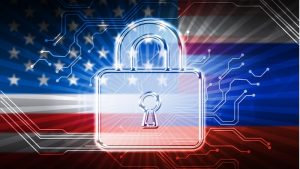A new study by the Science, Technology, and Public Policy Program (STPP) at the Gerald R. Ford School of Public Policy at the University of Michigan argues that schools should ban the use of facial recognition technology, citing limited efficacy and other issues.
When New Mexico State University (NMSU) students return for classes this fall, whether in-person or online, their classrooms will be quite different than when they left school last spring. In an Aug. 13 press release, NMSU detailed all of the new classroom technology upgrades awaiting students and professors.
To help universities protect COVID-19 research, Reps. Andy Barr, R-Ky., and Frank Lucas, R-Okla., introduced legislation to give those universities and research institutions tools to protect from cyberattacks by foreign cyber actors.
New research from London-based Pearson finds that three-quarters of respondents to its Global Learner Survey believe that the coronavirus pandemic has “fundamentally changed” education toward more technology-centric delivery modes, with two-thirds of those surveyed saying that educational institutions need to improve their technology services to keep up with the trend.
The Hawaiʻi State Department of Education (HIDOE) announced the launch of its ʻOhana Help Desk, which will provide self-service and chat support for families experiencing issues connecting to HIDOE systems remotely from home. In an Aug. 4 press release, HIDOE said the state has invested $1.7 million to establish the help desk.
The Illinois Department of Innovation & Technology (DoIT) announced Aug. 6 the publication of a new website to provide a consolidated resource for Science, Technology, Engineering, Arts, and Mathematics (STEAM) in Illinois.
In light of the COVID-19 pandemic, the Mississippi Department of Education (MDE) is working with local school districts statewide to implement two new pieces of legislation designed to give school districts the technology they need to facilitate distance learning.
The State of New York is looking to invest heavily in modernizing K-12 technology. Governor Andrew Cuomo announced that the state has allocated $94 million for “reimagining teaching and learning for the 21st century.” As part of this round of funding, Cuomo approved 148 Smart Schools Investment Plans.
The National Science Foundation is investing in introducing quantum information science into K-12 schools, awarding a $750,000 award to an Illinois-based organization that is looking to spread quantum-related curricula.
The Department of Education wants to improve student privacy and cybersecurity at institutions of higher education, and listed engaging those institutions as a goal over the next year in its July 2020 President’s Management Agenda (PMA) update.














